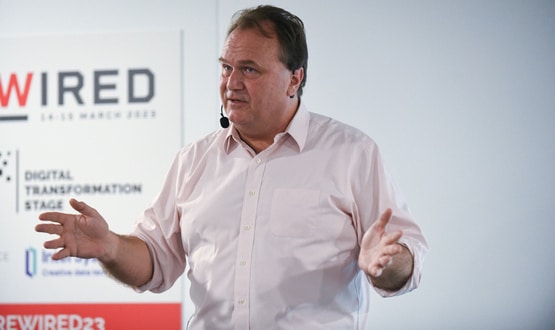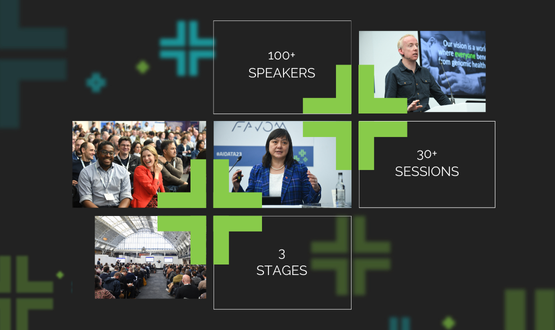UK has unique opportunity to share data and improve population’s health
- 14 March 2023

Innovative data sharing between the NHS and high street pharmacy could deliver a huge leap forward in early prevention of disease and improved management of long-term conditions.
New collaborations between all the different contributors to the healthcare system are essential to provide individuals with the information they need to improve their health and take the pressure off the NHS, suggested keynote speakers on the Digital Transformation Stage at Rewired.
Speaking this morning, Boots UK and ROI managing director Sebastian James said that better sharing of patient data between community pharmacy and the NHS could transform the way healthcare services are delivered, by personalising care and providing continuity between secondary and primary care and high street pharmacies.
“The data resources we have in the UK are unique,” said James. “We have something most countries can only dream of – a single point of contact with patients.”
He pointed out that Boots held “extraordinary data” on its customers’ health, through its prescription and vaccination services and its Advantage Card loyalty scheme. “With patients’ consent, we should be able to feed back data to GPs and the rest of the primary care team,” said James.
He cited a recent study by Imperial College London, which found that loyalty card data, by revealing a pattern of purchases of over-the-counter pain and indigestion medications, could be an early predictor of ovarian cancer.
Early detection of disease
Boots is a partner of Our Future Health, the UK’s largest ever research programme, which aims to recruit 5 million volunteers to provide health data that will drive early detection and prevention of diseases.
Dr Raghib Ali, chief medical officer and joint chief investigator with Our Future Health, said the programme would give volunteers the option of receiving “individual-level feedback” about their health, so they can take actions to reduce their risks. The programme, which formally launched in October, has already taken blood samples from 100,000 people.
“We want to give people in the UK a road map of their future health, so they know what to expect,” said Dr Ali.
James suggested it was important to “nudge” healthy behaviours and encourage efficient use of health resources by rewarding people for sharing their data. Boots could potentially “reward people with advantage points for taking their medicines – and ask them how they are feeling. That’s data we could share with the NHS.”
He also emphasised the importance of consent and being “respectful” when collecting health data and communicating with people about their health risks.




